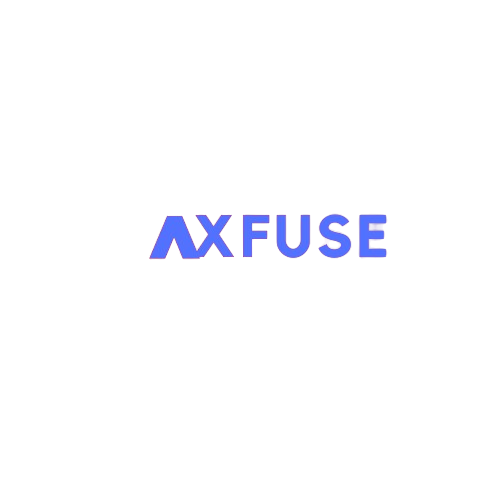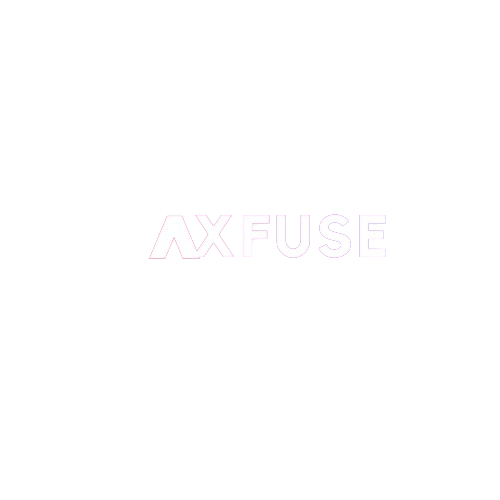The Schengen Area, consisting of 27 European countries, is one of the most business-friendly regions in the world. To facilitate travel for professionals attending meetings, conferences, trade fairs, and other business-related events, the Schengen Business Visa is a key entry permit. For individuals seeking to engage in short-term business activities, understanding the application process, requirements, and conditions of this visa is crucial.
This comprehensive guide will provide insight into the Schengen Business Visa, covering eligibility criteria, application procedures, required documents, and useful tips for a successful application.
What is a Schengen Business Visa?
The Schengen Business Visa is a short-term visa that allows non-Schengen nationals to enter the Schengen Area for business purposes. This visa falls under the category of Type C Schengen Visa and permits travelers to stay for up to 90 days within a 180-day period.
- Purpose: The visa is designed for business travelers attending meetings, conferences, trade fairs, negotiations, or other business-related activities. It does not permit employment or long-term residency in any of the Schengen countries.
- Validity: Generally valid for stays of up to 90 days within a six-month period. Some visas may be issued as single-entry, double-entry, or multiple-entry, depending on the applicant’s travel requirements and the consulate’s decision.
Which Countries Require a Schengen Business Visa?
The Schengen Business Visa is required for nationals of certain countries who wish to visit any of the 27 Schengen Area countries for business activities. The Schengen Area includes popular business destinations like Germany, France, Italy, Spain, the Netherlands, and Switzerland.
Note: Nationals of some countries have visa-free access to the Schengen Area for short stays (up to 90 days). However, they may still need a visa if their business activities exceed the permitted period or involve specific professional engagements.
Who is Eligible for the Schengen Business Visa?
To be eligible for the Schengen Business Visa, applicants must meet specific criteria:
- Valid Passport: Hold a passport that is valid for at least three months beyond the intended departure date from the Schengen Area.
- Business Purpose: Have a legitimate business purpose for visiting the Schengen countries, such as attending meetings, conferences, trade fairs, or business negotiations.
- Financial Means: Demonstrate sufficient funds to cover the entire stay, including accommodation, travel expenses, and daily costs.
- Travel Insurance: Possess valid travel insurance with a minimum coverage of €30,000 for medical emergencies, including hospitalization, accidents, and repatriation.
- Intent to Return: Provide evidence of ties to the home country, such as employment, family, or property, to ensure the intention of returning after the business visit.
How to Apply for the Schengen Business Visa
Applying for a Schengen Business Visa involves a series of steps, including gathering necessary documents, filling out the application form, and attending an interview at the consulate. Here is a step-by-step guide to the application process:
Step 1: Determine the Appropriate Embassy or Consulate
The first step is to identify the correct Schengen country embassy or consulate to apply through. This depends on your travel itinerary:
- Single Country Visit: If you are visiting only one Schengen country, apply at the embassy or consulate of that country.
- Multiple Country Visits: If visiting multiple countries, apply at the embassy or consulate of the country where you will spend the most time (the main destination). If the duration is equal, apply at the embassy of the country of first entry.
Step 2: Schedule an Appointment
You must schedule an appointment at the appropriate embassy or consulate. Some consulates also use visa application centers, such as VFS Global or TLScontact, to handle applications. Early planning is essential, as appointment slots may fill up quickly, especially during peak business travel seasons.
Step 3: Gather Required Documents
Prepare the following documents for your Schengen Business Visa application:
1. Visa Application Form
- Complete the Schengen Visa application form accurately and sign it. The form can be downloaded from the embassy’s website or completed online, depending on the consulate’s procedures.
2. Valid Passport
- The passport must be valid for at least three months beyond your intended departure from the Schengen Area. It should have at least two blank pages for visa stamping.
3. Passport-Sized Photos
- Two recent passport-sized photos (35mm x 45mm) with a white background, adhering to Schengen visa photo requirements.
4. Cover Letter
- A cover letter explaining the purpose of your visit, itinerary, planned activities, and the duration of your stay.
5. Business Invitation Letter
- A formal invitation letter from the company or organization in the Schengen country you intend to visit. The letter should:
- Be written on the company’s official letterhead, including contact information and the purpose of the visit.
- State the applicant’s name, position, and intended business activities.
- Include details about the business relationship and mention who will cover travel and accommodation expenses.
6. Proof of Employment
- A letter from your employer in your home country confirming your employment, position, and purpose of your business trip. It should also state the dates of leave and guarantee your return.
7. Travel Itinerary
- A detailed travel itinerary, including flight reservations (round-trip), hotel bookings, and a schedule of planned business meetings or events.
8. Travel Insurance
- Proof of travel insurance with a minimum coverage of €30,000, valid across the Schengen Area for the entire duration of your stay.
9. Proof of Financial Means
- Bank statements from the last three to six months, credit card statements, or other financial documents demonstrating that you have sufficient funds to cover the trip’s expenses.
Step 4: Submit the Application and Attend the Interview
On the appointment day, bring all the required documents to the embassy, consulate, or visa application center. During the submission, you may be required to attend an interview where the consular officer will ask questions about your travel plans, business activities, and ties to your home country.
- Biometric Data: You may need to provide biometric data (fingerprints and a digital photo) as part of the application process.
- Visa Fees: Pay the non-refundable visa application fee, which varies depending on the consulate but typically ranges around €80.
Step 5: Await Processing and Decision
The processing time for a Schengen Business Visa usually takes 15 calendar days, though it can vary depending on the consulate, nationality, and time of year. In some cases, processing may take longer if additional documents or verifications are required.
Step 6: Collect Your Visa
Once your visa is approved, you will be notified to collect your passport with the visa affixed. If denied, the consulate will provide a reason for the refusal, and you may have the option to appeal the decision.
Tips for a Successful Schengen Business Visa Application
- Apply Early: Begin the application process at least three months before your intended travel date to account for potential delays.
- Be Thorough: Provide detailed and accurate information in the application form, cover letter, and supporting documents to demonstrate the legitimacy of your business visit.
- Show Strong Ties to Your Home Country: Evidence of employment, family ties, and property ownership can help convince the consulate of your intent to return after the business visit.
- Double-Check Requirements: Check the specific requirements of the consulate where you are applying, as some may have additional or country-specific document requirements.
- Maintain Professionalism: During the interview, present yourself professionally and clearly articulate the purpose of your business trip and how it aligns with the goals of the visit.
Using the Schengen Business Visa
Once granted, the Schengen Business Visa allows you to engage in short-term business activities such as:
- Attending business meetings, conferences, and seminars.
- Participating in trade fairs or exhibitions.
- Negotiating business deals or signing contracts.
- Engaging in short-term training programs or workshops.
Note: The Schengen Business Visa does not permit employment or long-term residence. If your business visit requires an extended stay, or if you intend to engage in employment within the Schengen Area, you must apply for the appropriate national visa or work permit of the country you plan to stay in.
FAQs on the Schengen Business Visa
Q: How long can I stay in the Schengen Area with a business visa?
A: The Schengen Business Visa allows a stay of up to 90 days within a 180-day period. The visa’s validity and number of entries depend on the consulate’s decision.
Q: Can I visit multiple Schengen countries with a single visa?
A: Yes, a Schengen Business Visa allows you to travel freely within the 27 Schengen countries during its validity, provided you follow the entry conditions and duration of stay.
Q: Can I apply for a Schengen Business Visa for multiple visits?
A: You can apply for a multiple-entry Schengen Business Visa if you need to make several trips to the Schengen Area within a year. The approval depends on the consulate’s assessment of your need for frequent travel.
Q: What should I do if my visa application is denied?
A: If your visa application is denied, the consulate will provide a reason. You may have the option to appeal the decision or reapply with additional supporting documents addressing the concerns raised.
Conclusion
The Schengen Business Visa is an invaluable tool for professionals seeking to engage in short-term business activities in Europe. By understanding the application process, gathering the necessary documents, and meeting the requirements, you can enhance your chances of obtaining this visa and ensuring a smooth business trip.
Key factors such as presenting a clear purpose of travel, providing evidence of strong ties to your home country, and demonstrating financial capability are crucial for a successful application. Remember, the Schengen Business Visa facilitates business meetings, conferences, trade fairs, and negotiations, but it does not permit employment or long-term stays.
If you plan multiple visits throughout the year, consider applying for a multiple-entry visa to streamline future travel. Should your application be denied, reviewing the provided reasons and addressing any concerns can improve your chances upon reapplication.
By following this guide, you’ll be well-equipped to navigate the Schengen Business Visa process and make the most of your business opportunities in the Schengen Area. Start preparing early, ensure all documents are in order, and present your case confidently to make your business travel experience in Europe a success.

